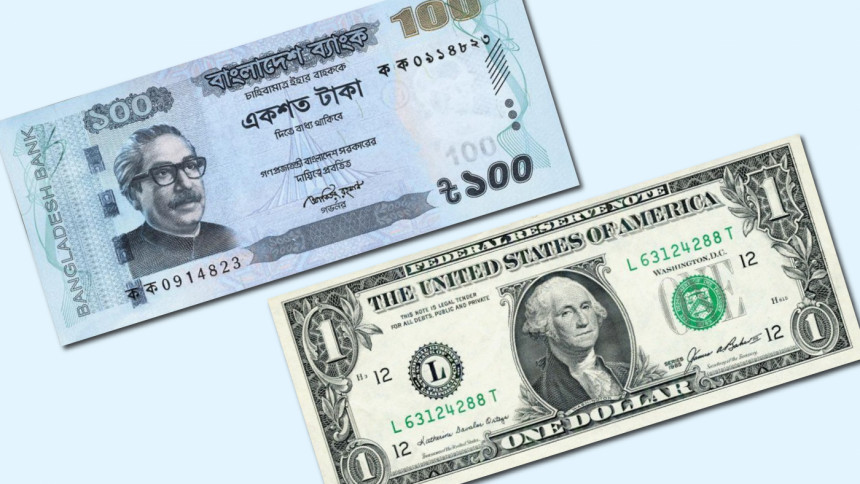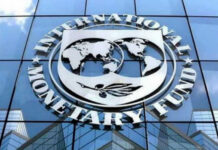

Bangladesh’s national currency may weaken further against the US dollar as the central bank has moved to restore stability in the foreign exchange market.
The new interbank exchange rate, the rate charged on short-term loans made between banks, could see the taka slide by another Tk 2, said the managing director of a private commercial bank.
If it takes place finally, the local currency will trade at Tk 89.80 per USD, up from Tk 87.90 now.
The possibility for another bout of depreciation of the taka raises following a tripartite meeting between the Bangladesh Bank, the Association of Bankers, Bangladesh (ABB), and the Bangladesh Foreign Exchange Dealers’ Association (BAFEDA).
At the meeting, the BB asked banks to suggest uniform exchange rates of the taka against the US dollar.
The central bank will make the final decision to this end after assessing the rates.
BB Governor Fazle Kabir presided over the meeting.
The central bank asked the BAFEDA, a platform of the banks involving in foreign exchange-related business, to fix the interbank exchange rate, said BB spokesperson Md Serajul Islam.
“We discussed the new interbank exchange rate after the meeting,” said the managing director of the bank.
The meeting came as the country is struggling to bring back discipline in the foreign exchange market, which has become volatile owing to the ongoing global crisis. This has forced the central bank to devalue the local currency six times this year.
The price increases in the global market due to Russia’s invasion of Ukraine and the dragging coronavirus pandemic have pushed up Bangladesh’s import payments to a record level.
It has created acute pressure on the trade deficit, which went past $24.90 billion between July and March. Against this backdrop, banks are now facing dollar shortages.
Although the central bank has fixed the BC (bills for collection) rate, the rate at which banks sell dollars to importers, at Tk 88, banks are chiefly ignoring the rate and are instead charging more than Tk 95-97.
Both the ABB, a platform of the managing directors of banks, and the BAFEDA will work together to determine the uniform exchange rate for the exchange houses located abroad, Islam said.
The rate will have to be followed by banks while providing rates to the beneficiaries of remittances.
Many banks now offer as high as Tk 95 per USD to exchange houses to encourage them to send the greenback through their channel. Banks need dollars to settle import bills.
This has led to unethical competition among banks. The rate provided to remitters is supposed to be lower than that of the BC selling rate.
Both ABB and BAFEDA are expected to recommend the rates to the BB by Sunday.
Islam said that the central bank would continue to provide liquidity support to the banking sector based on the demand.
The BB has injected a record $5.83 billion into the economy to cool down the market in the current financial year, ending in June.
The injection of the US dollar has left an adverse impact on the reserves, which stood at $42.29 billion on Wednesday in contrast to $46.15 billion in December.
The tripartite meeting also decided that exporters would have to sell their export proceeds to the banks through which they ship goods.
“They will not be allowed to sell the export proceeds through other banks,” said Islam.
Many exporters sell their export proceeds to the banks that offer the higher rate.
Selim RF Hussain, chairman of the ABB, said that the ongoing pressure in the foreign exchange market would ease soon as banks have already taken a set of measures.
The ABB will also recommend the rates to be followed while buying USD from exporters and selling it to importers.
The rates for importers could be set at Tk 89.90 per USD. For exporters, it could be Tk 88.90 and Tk 89.70 for the exchange houses, said the managing director, on the condition of anonymity.









